Compare and Contrast: W.E.B. DuBois and Booker T. Washington
Introduction, similarities between web dubois and booker t. washington, difference between booker t. washington and web dubois.
Need to compare and contrast WEB DuBois and Booker T. Washington? Get inspired by this essay sample! Here, you will find both differences and similarities between DuBois and Washington. See what the two famous leaders agreed on and where their beliefs differed.
W.E.B. Du Bois and Booker T. Washington are well-known for what they have achieved in their lives as leaders. They are recognized as significant leaders of the African American society during the period towards the end of the 19th century to the beginning of the 20th century. Although they were both leaders concerned with the same community, the African American, they often disagreed on some aspects: for instance, the strategies to be adopted for the sake of allowing prosperity of the African Americans both socially and economically. This piece of work gives critical information regarding differences and similarities between DuBois and Washington.
Although W.E.B. Du Bois and Booker T. Washington were distinct leaders governing African American society, they have some similarities in regard to their leadership styles as well as their general life. One similarity is that they both advocated for improvement of the African Americans and engaged in activities aimed at achieving this. They were both educated and had a good understanding of leadership and the different styles that could be applied to get things done. Both Du Bois and Washington died as heroes having accomplished a lot in regard to fighting for equality. Du Bois legacy as an informative writer and a strong racial leader especially being an Afro- American has lived to present. Washington has also been remembered for his realistic movements as he ensured that the African Americans achieved the best without interrupting the status quo. This made him receive a lot of power and authority which in turn enabled him to perpetrate even much things for which he is remembered to today. He appeared in the United States postage stamp as well as the 50 cent coin (Washington 117).
Even though W. E. B. Du Bois and Booker T Washington were very different in their leadership philosophies, they both influenced the black people in the United States of America to what they have come to be today through enlightening them on their rights and helping them to achieve them. They both came at a critical moment, after reconstruction, when the status of the African Americans in the southern American society weakened as they lost access to power (social, political and economic). It was the transition of the African American from a state of power to powerlessness that Du Bois and Washington came to their rescue (Du Bois 46).
There are some notable differences that exist between W.E.B. Du Bois and Booker T. Washington in terms of their leadership undertakings as well as general life. W.E.B. Du Bois believed that civil rights could be attained through revolution movements while Booker T. Washington insisted that civil rights could be achieved through evolution. According to Booker Washington, the African Americans would only achieve success after reaching a certain level of development in various aspects. He therefore advocated for togetherness of the African Americans through carrying out processes aimed at development as well as emphasizing on financial progress and education prosperity. This was meant to empower them with relevant skills and knowledge that would help them to be involved in productive sectors of the economy. They were however required to wait before engaging in political activities. This would make the blacks to evolve from their poor status to a position close to the whites (Washington 5).
Du Bois W.E.B. on the other hand believed that the African Americans were not supposed to wait but rather to engage in all activities that would empower them in any way including politics. He based his argument on the fact that they also had their political rights just like the whites and so they were supposed to participating in governance to ensure that their needs were well incorporated in the state’s decisions making. As opposed to Washington Booker, Du Bois believed that the African Americans had no point of proving to the whites that they were worthy being treated equally but they ought to fight/ demand for what they were meant to receive as stipulated by the constitution of the United States of America. He advocated for confrontation while Washington advocated for use of indirect means (Du Bois 12).
Du Bois, having a black origin, was more vigorous in fighting for the blacks’ prosperity as he really understood what humiliation they went through as a result of being discriminated. Du Bois supported communism but always looked at the interests of his people. Washington on the other hand was very interested with the white culture and ideologies but played his part in helping the blacks move away from their problems.
It is evident that the two leaders are remarkable and both have played a great role in delivering the African Americans from captivity under the hands of the whites. Although there are some similarities between the two leaders, the differences seem to be more due to the approach they took in their leadership efforts. All in all, they were able to achieve their objectives as leaders.
Du Bois William Edward Burghardt. The Souls of Black Folk (An African American Heritage Book). Radford, VA: Wilder Publications, 2008.
Washington Taliaferro Booker. Up from Slavery: An Autobiography . Rockville, MD: Wild side Press LLC, 2007.
- Chicago (A-D)
- Chicago (N-B)
IvyPanda. (2023, October 29). Compare and Contrast: W.E.B. DuBois and Booker T. Washington. https://ivypanda.com/essays/web-du-bois-and-booker-t-washington-comparison/
"Compare and Contrast: W.E.B. DuBois and Booker T. Washington." IvyPanda , 29 Oct. 2023, ivypanda.com/essays/web-du-bois-and-booker-t-washington-comparison/.
IvyPanda . (2023) 'Compare and Contrast: W.E.B. DuBois and Booker T. Washington'. 29 October.
IvyPanda . 2023. "Compare and Contrast: W.E.B. DuBois and Booker T. Washington." October 29, 2023. https://ivypanda.com/essays/web-du-bois-and-booker-t-washington-comparison/.
1. IvyPanda . "Compare and Contrast: W.E.B. DuBois and Booker T. Washington." October 29, 2023. https://ivypanda.com/essays/web-du-bois-and-booker-t-washington-comparison/.
Bibliography
IvyPanda . "Compare and Contrast: W.E.B. DuBois and Booker T. Washington." October 29, 2023. https://ivypanda.com/essays/web-du-bois-and-booker-t-washington-comparison/.
- W.E.B. Du Bois, King, and Booker T. Washington: Approach to Black American Advancement
- Key Differences Between Booker T. Washington and W.E.B. Dubois Essay
- Booker Washington and Du Bois Approaches
- Ideas of W.E.B. Dubois and Booker T. Washington
- Washington's and Dubois' Views on Black Advancement Movement
- Stories of the Black Men: Booker T. Washington and W. E. B. Du Bois
- African Americans in Du Bois' vs. Washington's Views
- Black Americans at the Turn of the Century: Washington and Du Bois
- Booker T. Washington in American History Since 1877
- Du Bois' “The Soul of Black Folk” and T. Washington's “Up From Slavery”
- Muhammad Ibn Musa al-Khwarizmi's Science Contributions
- Prominent African People: Kofi Annan
- Muammar Gaddafi Death: Aspects and Publicity
- Muammar Gaddafi’s Death: Scene and Dilemma
- Mao Zedong: A Philosopher Turned Into a Dictator

W.E.B. Du Bois and Booker T. Washington Had Clashing Ideologies During the Civil Rights Movement
The differences between the activists were what made them stronger as pioneers of the movement.
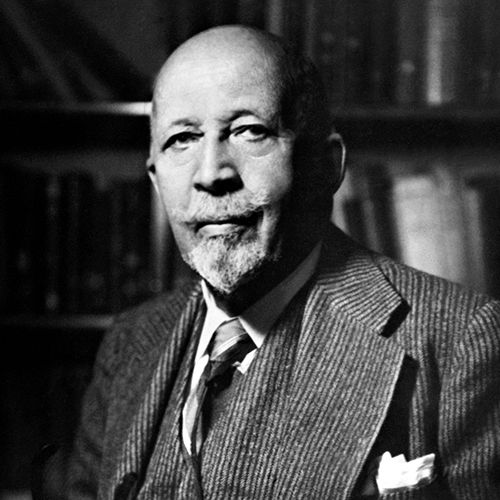
Washington believed Black people should have economic independence
Born into slavery in Virginia in 1856, Washington’s early life and education did much to influence his later thinking. After the Civil War he worked in a salt mine and as a domestic for a white family and eventually attended the Hampton Institute, one of the first all-Black schools in America. After completing his education, he began teaching, and in 1881 he was selected to head the Tuskegee Normal and Industrial Institute in Alabama, a sort of vocational school that sought to give African Americans the necessary moral instruction and practical work skills to make them successful in the burgeoning Industrial Revolution.
Washington believed that it was economic independence and the ability to show themselves as productive members of society that would eventually lead Black people to true equality and that they should for the time being set aside any demands for civil rights. These ideas formed the essence of a speech he delivered to a mixed-race audience at the Cotton State and International Exposition in Atlanta in 1895. There and elsewhere, his ideas were readily accepted by both Black people who believed in the practical rationality of his approach, and white people who were more than happy to defer any real discussion of social and political equality for Black people to a later date. It was, however, referred to pejoratively as the “Atlanta Compromise” by its critics. And among them was Du Bois.
_Associated_Press_Wikimedia_Commons?resize=980:*)
Born to a free Black family, Du Bois first experienced bigotry in college
Du Bois was born in 1868 in Great Barrington, Massachusetts, to a free Black family in a comparatively integrated community. He attended the local schools and excelled in his studies, eventually graduating as valedictorian of his class. However, when in 1885 he began attending Fisk University in Tennessee, he encountered for the first time the open bigotry and repression of the Jim Crow South, and the experience had a profound impact on his thinking. Du Bois returned to the North to further his education, with nothing less than equal rights for Black Americans being his ultimate goal. When he earned his Ph.D from Harvard University in 1895, he was the first Black man to have done so, and his dissertation, “The Suppression of the African Slave Trade to the United States of America, 1638–1870,” was one of the first academic works on the subject.
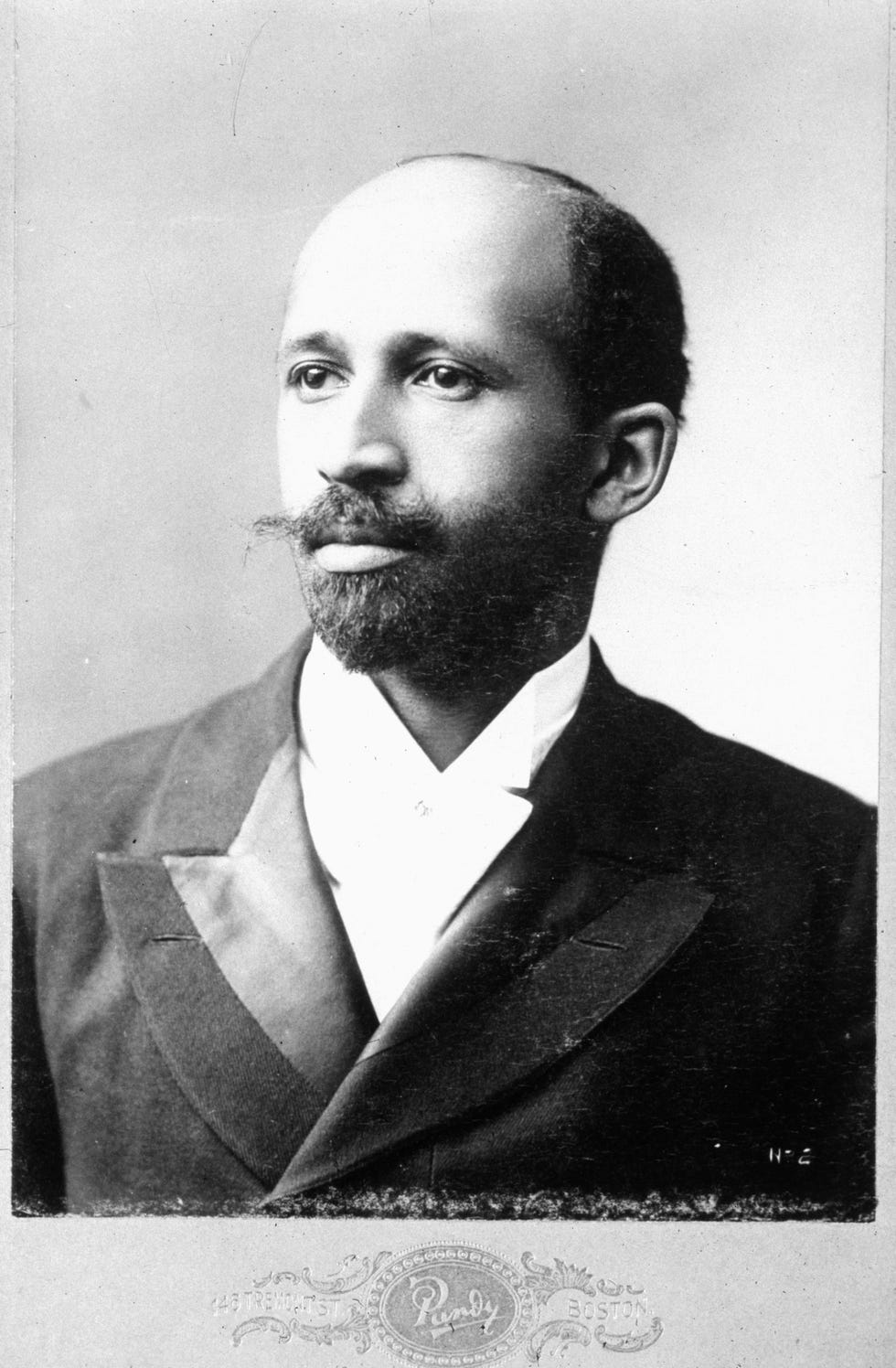
Washington and Du Bois' ideologies clashed
By the early 20th century, Washington and Du Bois were the two most influential Black men in the country. Washington's conciliatory approach to civil rights had made him adept at fundraising for his Tuskegee Institute, as well as for other Black organizations, and had also endeared him to the white establishment, including President Theodore Roosevelt , who often consulted him regarding all matters about Black people.
On the other hand, Du Bois had by that time become the country’s foremost Black intellectual, having published numerous influential works on the conditions of Black Americans. In contrast to Washington, Du Bois maintained that education and civil rights were the only way to equality and that conceding their pursuit would simply serve to reinforce the notion of Black people as second-class citizens. Following a series of articles in which the two men expounded on their ideologies, their differences finally came to a head when, in 1903, Du Bois published a work titled The Souls of Black Folks , in which he directly criticized Washington and his approach and went on to demand full civil rights for Black people.
More than just deepening the personal dislike between Washington and Du Bois, this ideological rift would in time prove to be one of the most important in the history of the struggle for civil rights. Believing that political action and agitation were the only way to achieve equality, in 1905 Du Bois and other Black intellectuals founded a political group called Niagara, which was dedicated to the cause. Though the group eventually dissolved a few years later, in 1909 several of its members and many of its aims were incorporated into a new organization — the National Association for the Advancement of Colored People (NAACP). For the next 25 years, Du Bois would serve as its director of publicity, as well as the editor of its journal, Crisis , which became the mouthpiece for the organization, for Du Bois and for Black America in general.
READ MORE: How W.E.B. Du Bois Helped Create the NAACP
When President Woodrow Wilson assumed office in 1913, he immediately segregated the federal government, and Washington consequently lost the political influence he had enjoyed for the previous decade. Washington died in Tuskegee, Alabama, on November 14, 1915.
Du Bois eventually split from the NAACP, but he continued to champion the cause of civil rights for both African Americans and the African diaspora around the world. After joining the American Communist Party in 1961, Du Bois repatriated to Ghana and became a naturalized citizen. He died in Ghana on August 27, 1963, at the age of 95. Martin Luther King Jr. led the March on Washington the next day.
Black History

10 Famous Langston Hughes Poems

5 Crowning Achievements of Maya Angelou
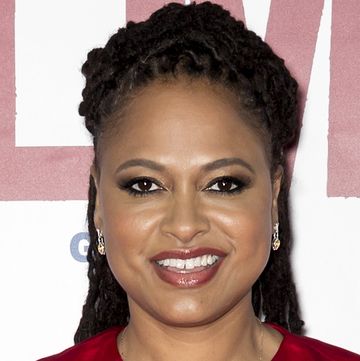
Ava DuVernay

Octavia Spencer
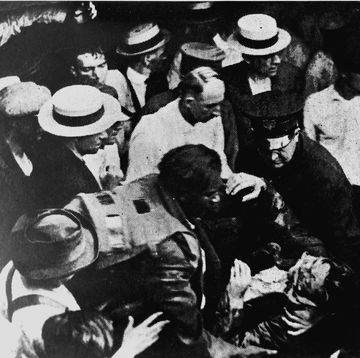
Inventor Garrett Morgan’s Lifesaving 1916 Rescue
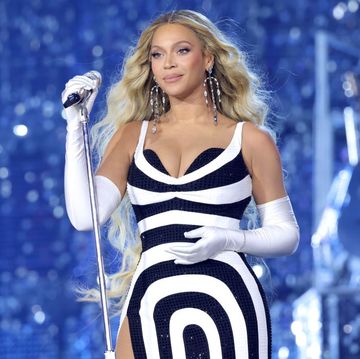
Get to Know 5 History-Making Black Country Singers
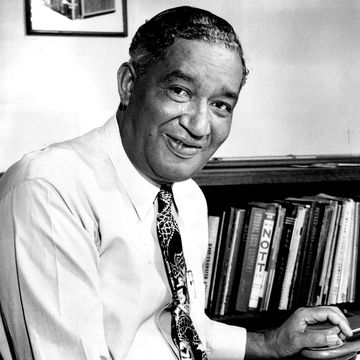
Frederick Jones

Lonnie Johnson
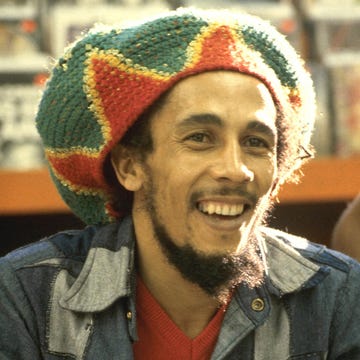
10 Black Authors Who Shaped Literary History
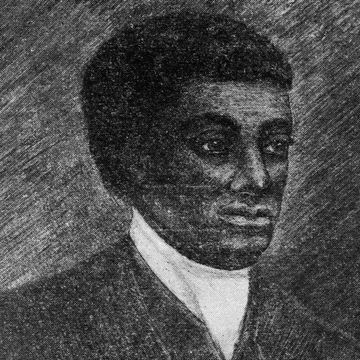
Benjamin Banneker

Booker T Washington vs W.E.B Du Bois: The Great Debate
Booker T Washington vs W.E.B Du Bois took place before Martin vs Malcom.
But what was the great debate that shaped the course of the civil rights movement? And was this a real rivalry or more of a disagreement on how to fight racism in America?
Both Booker T Washington and W.E.B Du Bois are extraordinary figures in American history. Each men had profound influence in the early 1900s in the struggle for Black equality, an influence that left an impact that can still be seen and felt.
The great Booker T Washington vs W.E.B Du Bois debate was over which road would lead to equality: economic independence or fighting for civil rights. Washington believed Blacks having economic independence and creating wealth for themselves would lead to equality while Du Bois argued that fighting for civil rights was the right course to take.
Born a Slave, Washington Becomes Black Elite
Booker T. Washington was born on April 5, 1856 into slavery in Virginia. After his mother, Jane (an African American woman), was emancipated, she moved the family to West Virginia. Washington’s father was white, and he never knew the identity of his father. Young Washington went on to attend Hampton Normal and Agricultural Institute (now Hampton University) and Wayland Seminary (now Virginia Union University).
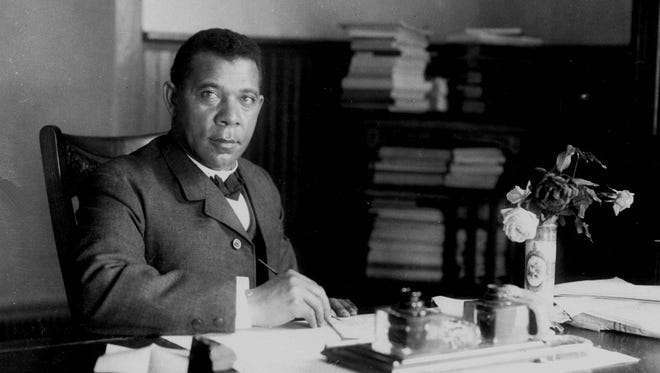
In 1881, Booker T. Washington became the first leader of the Tuskegee Institute in Alabama, a new organization founded for the higher education of Blacks. He expanded the school by having the students work at the college constructing buildings and maintaining a large farm.
RELATED: Last Slave Ship, Clotilda, and the Story of the Last Survivor Slave
Washington became a popular figure in the Black community and with liberal Whites across the country.
Even though he was criticized for not supporting civil right causes and having a softer tone when it comes to dealing with racism, Washington secretly funded litigation for civil rights cases, challenging laws that hurt Blacks across the South.
Booker T. Washington also used his connections with rich white philanthropists to fund other schools he was developing besides Tuskegee. The likes of J.P. Morgan, Collis P. Huntington, and John D. Rockefeller contributed to Washington’s cause. He encouraged Black youths to learn skills that would make them great participants in the industrial revolution, and hence making them valuable members of society.
In 1901, President Theodore Roosevelt invited Booker T. Washington to dine with him and his family at the White House. This was the first time a Black leader was officially invited to the white house and garnered high publicity as a social occasion.
By the time of his death in 1915, Washington had written 14 books, including his popular autobiography, Up from Slavery .

W.E.B. Du Bois Had A Different Perspective
William Edward Burghardt Du Bois was born on February 23, 1868 in Great Barrington, Massachusetts. Du Bois’ parents, mother Mary Silvina Du Bois and father Alfred Du Bois, separated when he was only two and Du Bois was raised with his mother’s family.
Living in a majority white neighborhood and attending a white school, Du Bois encountered racism. However, his brilliant mind was recognized and encouraged as a child. After high school, when DuBois decided to go to college, the First Congregational Church of Great Barrington raised the money for his tuition.
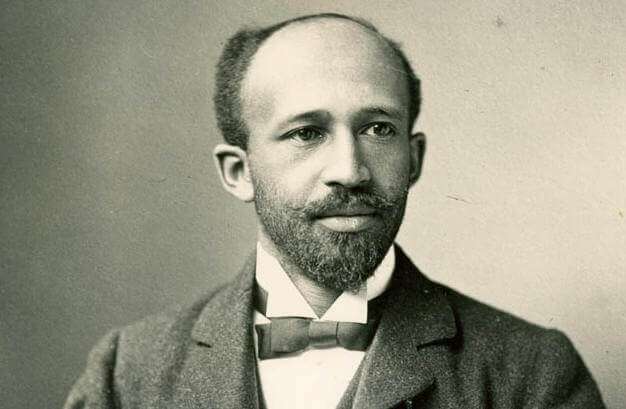
Du Bois attended Fisk University (a historically black college in Nashville, Tennessee) and Harvard College. He went to Germany to attend the University of Berlin for graduate work. Du Bois returned home to attend Harvard University and became the first African American to earn a Ph.D. from there.
RELATED: On Julian Bond & His Timeless Quotes on Civil Rights
In 1900, Du Bois attended the First Pan-African Conference held in London.
He drafted a letter titled “Address to the Nations of the World”, a letter that called for world leaders to fight racism, grant colonies in Africa and the West Indies their independence, and demand political rights for African Americans.
In 1903, Du Bois published The Souls of Black Folk , a collection of 14 essays the depicted Black life at the turn of the century. The book is believed to be one of the most influential social books of the century.
After the creation of the NAACP in 1910, Du Bois was given the position of Director of Publicity and Research. His main job was editing the NAACP’s monthly magazine, which he named The Crisis . The magazine was a major success and the circulation reached 100,000 in 1920.
When the Harlem Renaissance took place in the mid-1920s, Du Bois promoted African American artistic creativity in his writings, such as his article “A Negro Art Renaissance.” Dr. Du Bois was also an outspoken Socialist and ran for the U.S. Senate on the American Labor Party in 1950, at the age of 82.
Among other things, Du Bois was a sociologist, historian, civil rights activist, Pan-Africanist, and writer. He died in Accra, Ghana in 1963, one year before The Civil Rights Act of 1964, the act that embodied many of the reforms Du Bois fight for all his life.
Booker T Washington vs W.E.B Du Bois
Both Booker T. Washington and W.E.B. Du Bois had the goal of liberating the Black race from inequality and hardship. How can this be achieved best? Is it through Blacks concentrating their efforts on work, building businesses, and creating wealth for themselves and their communities or through putting their efforts to fight the system for equal citizen rights?
In the decades since his passing, Booker T. Washington has been greatly criticized for his “accommodating” approach when it comes to fighting racism. He believed if a race war was to break out, Blacks, who were severely outnumbered, would be demolished. So, in order to avoid a harsh conflict that could destroy communities, he believed Blacks should have a cautious approach when fighting for civil rights.
Washington believed the first step towards complete equality for blacks was a step towards financial independence.
RELATED: The Silent Parade of 1917: Why the Forgotten March Matters
In 1895, Booker T. Washington gave a speech at a Cotton State and international Exposition in Atlanta. In the speech, Washington emphasized that Blacks should set aside their demands for civil rights for now and instead concentrate on building strong communities through commerce.
Washington said: “Ignorant and inexperienced, it is not strange that in the first years of our new life we began at the top instead of at the bottom; that a seat in Congress or the state legislature was more sought than real estate or industrial skill; that the political conversation or stump speaking had more attractions than starting a dairy farm or truck garden.”
Washington basically wanted blacks to be left alone in their communities, even if segregated, to farm their lands, own their lands, and build their own communities. He told whites, it’s ok, we won’t bother you about civil rights, and you don’t bother us.
The speech was generally accepted well at the time by Blacks in the South. They viewed it as a practical way for Blacks and Whites to co-exist.
W.E.B. Du Bois first supported Washington’s speech but later became one of his harshest critics.
In one of his essays, titled “Of Mr. Booker T. Washington and Others”, Du Bois had this to say: “Mr. Washington came, with a single definite programme, at the psychological moment when the nation was a little ashamed of having bestowed so much sentiment of Negroes, and was concentrating its energies on Dollars. His programme of industrial education, conciliation of the South, and submission and silence as to civil and political rights, was not wholly original…But Mr. Washington first dissolubly linked these things; he put enthusiasm, unlimited energy, and perfect faith into this programme, and changed it from a by-path into a veritable Way of Life. And the tale of the methods by which he did this is a fascinating study of human life.”
After Washington’s passing, Du Bois became the leading black intellectual and brought his ideas to the forefront of the civil rights movement. He believed putting all efforts into building wealth without having civil rights guaranteed to Blacks was a dangerous approach.
Du Bois was not alone in believing this. Booker T. Washington was viewed as a sell out for decades until a re-examination of his life and teachings lead many to believe that he had a reasonable approach for the way things were at the time.
Washington’s push for putting almost all efforts into building strong Black communities away from white communities is an idea a lot of Black leaders view as smart now. His push for Black ownership is the basis for many successful black businesses that kept many communities afloat in the South.
Of course, it is easy to see where Du Bois’ influence has lead. The Civil Rights Movement was built on the back of teachings and ideas spread by the likes of W.E.B Du Bois.
What is your opinion on the matter? Let us know below in the comments.
Maia Campbell: What Happened to The ’90s Star?
Are Dominicans Black? Yes, but they’re also…
Documentaries

WATCH: In Uganda, Blind Football Is a Ray of Sunshine
How can blind people play football (known as soccer in the US)? Let these Uganda players show you! Football is...


WATCH: The Harriet Tubman of Tiny House Living
For many, living in a less than a 500sqft house might seem impossible. For Jewel Pearson, it is the luxurious...

WATCH: Why Gang Violence Has Risen Since 2020
2020 was a very traumatic year for many reasons. One of those reasons is the rise of gun violence. In...

WATCH: Inglewood’s revitalization sacrifices longtime residents
Inglewood is believed to be one of California’s last black enclaves, but a new NFL stadium and an NBA arena...
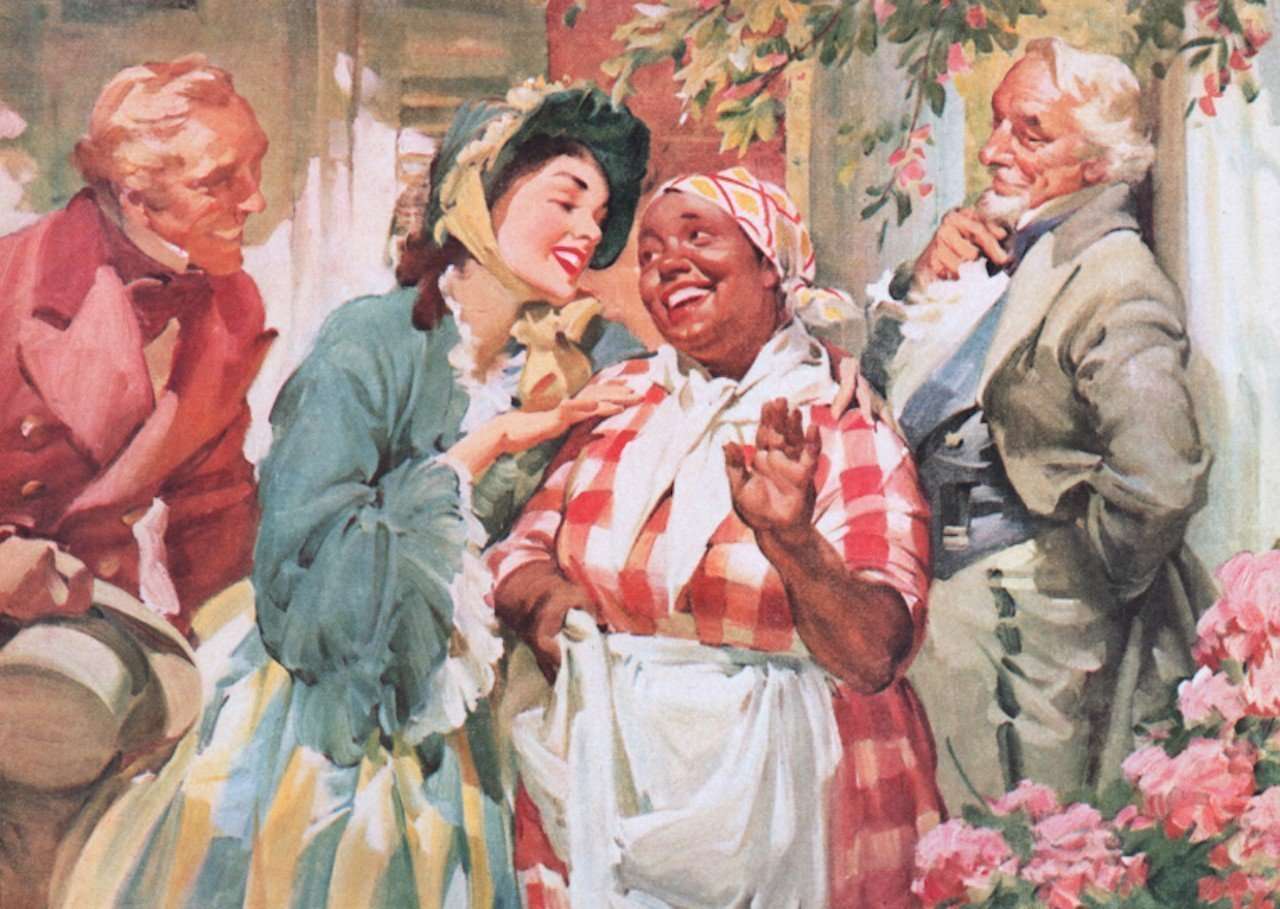
Aunt Jemima: It was Never About the Pancakes

101 Black Owned Restaurants You Need To Try !
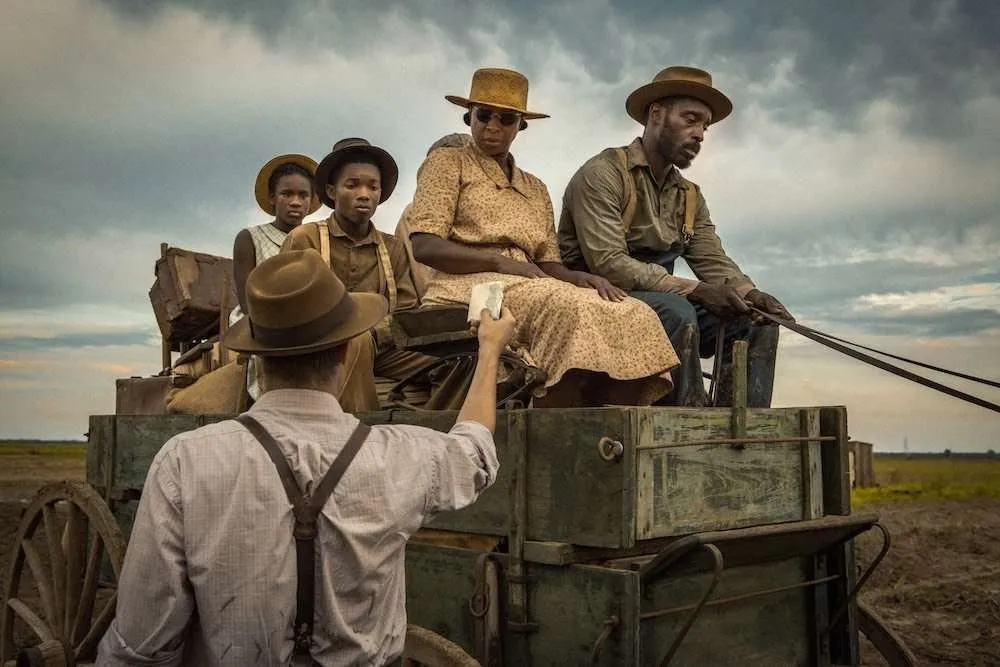
17 Black Shows on Netflix (and Movies) to Binge Watch
MA in American History : Apply now and enroll in graduate courses with top historians this summer!
- AP US History Study Guide
- History U: Courses for High School Students
- History School: Summer Enrichment
- Lesson Plans
- Classroom Resources
- Spotlights on Primary Sources
- Professional Development (Academic Year)
- Professional Development (Summer)
- Book Breaks
- Inside the Vault
- Self-Paced Courses
- Browse All Resources
- Search by Issue
- Search by Essay
- Become a Member (Free)
- Monthly Offer (Free for Members)
- Program Information
- Scholarships and Financial Aid
- Applying and Enrolling
- Eligibility (In-Person)
- EduHam Online
- Hamilton Cast Read Alongs
- Official Website
- Press Coverage
- Veterans Legacy Program
- The Declaration at 250
- Black Lives in the Founding Era
- Celebrating American Historical Holidays
- Browse All Programs
- Donate Items to the Collection
- Search Our Catalog
- Research Guides
- Rights and Reproductions
- See Our Documents on Display
- Bring an Exhibition to Your Organization
- Interactive Exhibitions Online
- About the Transcription Program
- Civil War Letters
- Founding Era Newspapers
- College Fellowships in American History
- Scholarly Fellowship Program
- Richard Gilder History Prize
- David McCullough Essay Prize
- Affiliate School Scholarships
- Nominate a Teacher
- Eligibility
- State Winners
- National Winners
- Gilder Lehrman Lincoln Prize
- Gilder Lehrman Military History Prize
- George Washington Prize
- Frederick Douglass Book Prize
- Our Mission and History
- Annual Report
- Contact Information
- Student Advisory Council
- Teacher Advisory Council
- Board of Trustees
- Remembering Richard Gilder
- President's Council
- Scholarly Advisory Board
- Internships
- Our Partners
- Press Releases
History Resources

Comparison of Ideas: Booker T. Washington and W. E. B. Du Bois
By wendy thowdis, essential question.
Which of the two views presented below, W.E.B. Du Bois’ or Booker T. Washington’s, offered a better strategy to put our nation on a quicker path to equality for African Americans at the turn of the twentieth century?
- Booker T. Washington, 1895 Atlanta Compromise Speech, History Matters, George Mason University
- Excerpt from W.E.B. Du Bois, Souls of Black Folk, 1903, History Matters, George Mason University
- Marcus Garvey, "The Conspiracy of the East St. Louis Riots," July 8, 1917 , PBS
Select appropriate excerpts for your level of students and have them answer the questions below. Note that the questions bring the students from the literal to the applied level of thinking. Teaching students about this taxonomy of thinking helps them to engage in historical thinking at a higher level. This is what metacognition is all about!
REMEMBER/KNOWLEDGE
- Describe the message Booker T. Washington had for African Americans who did not see the importance of friendly relations with white southerners.
- Name the three things Du Bois said that Washington wanted black people to give up.
- What are the three "supplemental truths" that Du Bois said "must never be lost sight of"? Infer why Du Bois outlined these three truths.
- Classify the various groups in society to answer the question: Who would support each of these black leaders’ ideas? Briefly state your reasons why. Groups: white industrial workers, black sharecroppers, white tenant farmers, big businessmen, northern blacks
- In your opinion, did Booker T. Washington or W.E.B. Du Bois have a better strategy for improving the social and economic conditions of African Americans? Why?
- Washington implied that political and social power cannot exist without economic power. Explain why you agree or disagree.
- In recent years there has been a debate over the validity of affirmative action programs, which attempt to aid minority groups and women in the areas of education and employment. What positions do you think Washington and Du Bois would take on this issue? Why?
- Read the passage from Marcus Garvey. Create a Venn diagram where you "plot" areas of agreement and disagreement among the three African American leaders.
Stay up to date, and subscribe to our quarterly newsletter.
Learn how the Institute impacts history education through our work guiding teachers, energizing students, and supporting research.
Home — Essay Samples — Literature — Web Dubois — Compare and Contrast the Writings of Booker T. Washington and W.E.B. DuBois
Compare and Contrast The Writings of Booker T. Washington and W.e.b. Dubois
- Categories: Web Dubois
About this sample

Words: 670 |
Published: Jan 29, 2024
Words: 670 | Page: 1 | 4 min read
Table of contents
Background information on booker t. washington, key writings and ideas of booker t. washington, background information on w.e.b. dubois, key writings and ideas of w.e.b. dubois, comparison of the writings and ideas of washington and dubois, analysis of the impact and effectiveness of their writings.
- "Booker T. Washington." History.com, A&E Television Networks, 4 Mar. 2010, www.history.com/topics/black-history/booker-t-washington.
- "W.E.B. Du Bois." Biography.com, A&E Networks Television, 16 April 2019, www.biography.com/scholar/web-du-bois.

Cite this Essay
Let us write you an essay from scratch
- 450+ experts on 30 subjects ready to help
- Custom essay delivered in as few as 3 hours
Get high-quality help

Dr. Karlyna PhD
Verified writer
- Expert in: Literature

+ 120 experts online
By clicking “Check Writers’ Offers”, you agree to our terms of service and privacy policy . We’ll occasionally send you promo and account related email
No need to pay just yet!
Related Essays
2 pages / 887 words
6 pages / 2692 words
3.5 pages / 1676 words
3 pages / 1406 words
Remember! This is just a sample.
You can get your custom paper by one of our expert writers.
121 writers online
Still can’t find what you need?
Browse our vast selection of original essay samples, each expertly formatted and styled
Related Essays on Web Dubois
In the history of African American civil rights activism, two prominent figures stand out: Booker T. Washington and W.E.B. Du Bois. Both leaders played essential roles in advancing the cause of racial equality in the United [...]
Booker T. Washington focused on having education for real life jobs and not asking for equality from the whites. He just focused on getting help from the whites and accepting their place as blacks on earth. WEB Dubois focused on [...]
Immediately following the Civil War, African Americans were faced with great discrimination and suffering. The newly free slaves were faced with the problem of making their stance in society that once looked at them as nothing [...]
W.E.B. Du Bois, an African American scholar and activist, penned the seminal work "The Souls of Black Folk" in the late 19th century. This masterpiece delves into the complex issues surrounding slavery, labor struggles, [...]
W. E. B. Du Bois' masterpiece, "The Souls of Black Folk," stands as an enduring pillar of American literature, continuing to exert its profound influence on contemporary society. Esteemed for its transformative impact on the [...]
The life and career of W.E.B Dubois was vastly multi-faceted and prolific, and his scope of talents and global citizenship encompasses various disciplines. “While his contributions to civil rights, sociology, history, African [...]
Related Topics
By clicking “Send”, you agree to our Terms of service and Privacy statement . We will occasionally send you account related emails.
Where do you want us to send this sample?
By clicking “Continue”, you agree to our terms of service and privacy policy.
Be careful. This essay is not unique
This essay was donated by a student and is likely to have been used and submitted before
Download this Sample
Free samples may contain mistakes and not unique parts
Sorry, we could not paraphrase this essay. Our professional writers can rewrite it and get you a unique paper.
Please check your inbox.
We can write you a custom essay that will follow your exact instructions and meet the deadlines. Let's fix your grades together!
Get Your Personalized Essay in 3 Hours or Less!
We use cookies to personalyze your web-site experience. By continuing we’ll assume you board with our cookie policy .
- Instructions Followed To The Letter
- Deadlines Met At Every Stage
- Unique And Plagiarism Free

IMAGES
VIDEO
COMMENTS
Although W.E.B. Du Bois and Booker T. Washington were distinct leaders governing African American society, they have some similarities in regard to their leadership styles as well as their general life. One similarity is that they both advocated for improvement of the African Americans and engaged in activities aimed at achieving this.
No account of Black history in America is complete without an examination of the rivalry between Booker T. Washington and W.E.B. Du Bois, which in the late 19th to early 20th centuries changed the ...
Booker T Washington was born a slave, and believed in a more "passive" approach to equality instead of directly revolting. And W.E.B. Du Bois Believed in the opposite, he believed the only way was to directly revolt. Both Booker T. Washington and W.E.B. DU Bois fought for equality, but there approaches were different.
Compare and Contrast Booker T Dubois. Booker T. Washington and W.E.B. Du Bois were two influential African American leaders who played pivotal roles in the fight for civil rights and equality in the late 19th and early 20th centuries. While they shared the common goal of advancing the rights and opportunities of African Americans, they had ...
Compare and Contrast the Writings of Booker T. Washington and W.E.B. DuBois Essay During the late 19th and early 20th centuries, two prominent African American leaders, Booker T. Washington and W.E.B. DuBois, emerged as key figures in the fight for racial equality.
Each men had profound influence in the early 1900s in the struggle for Black equality, an influence that left an impact that can still be seen and felt. The great Booker T Washington vs W.E.B Du Bois debate was over which road would lead to equality: economic independence or fighting for civil rights. Washington believed Blacks having economic ...
Both Booker T. Washington and W.E.B. Du Bois were influential Black leaders during the 19th and 20th centuries in America. Washington valued education, mainly agricultural and technical education ...
Documents Booker T. Washington, 1895 Atlanta Compromise Speech, History Matters, George Mason University Excerpt from W.E.B. Du Bois, Souls of Black Folk, 1903, History Matters, George Mason University Marcus Garvey, "The Conspiracy of the East St. Louis Riots," July 8, 1917, PBS Procedure Select appropriate excerpts for your level of students ...
Washington was criticized for being too accommodating to white society and for not pushing hard enough for full political and social equality for African Americans. Du Bois, on the other hand, was criticized for being too elitist and for alienating white allies with his more confrontational approach to racial equality.
Compare And Contrast Booker T Washington And W. E. B. Dubois. Fighting for Your Rights Booker T. Washington and W.E.B. DuBois were two different people with completely different beliefs. To start off, Booker T. Washington was a black educator in the late 19th century and early 20th century. He was born a slave, but around the age of 9, union ...
Booker T. Washington, an early leader in the fight for civil rights, held a distinctive perspective on the advancement of African Americans in society. He argued that a direct confrontation for equality would prove futile. Instead, Washington advocated a pragmatic approach, urging African Americans to focus on education, trade, and economic ...
Compare and contrast the views of Booker T. Washington and W.E.B. Du Bois on the issue of how best to help African-Americans achieve equality in the late 1800s. Booker T. Washington and W.E.B. Du ...
Compare And Contrast W. E. B. Dubois And Booker T Washington 1220 Words | 5 Pages. W.E.B. DuBois and Booker T. Washington were very influential leaders for the equality of blacks, specifically ex-slaves while W.E.B. DuBois was a founder of the well known NAACP. Both of them agreed that the goal was to have black people be fully engaged in society.
Open Document. W. E. B. Dubois and Booker T. Washington were well known civil rights activists who had practical ideologies for the progress of African Americans. Both Dubois and Washington made many important points to support their philosophy. Both men's concepts provided great support, though they shared different beliefs.
During the Civil Rights movement, both Washington and DuBois had plans to have improvements for Black Americans. Washington wanted to change things economically for others, which meant it would be economic independence and the ability to show themselves as productive members of society that led black people to true equality and being set aside on any demands for civil rights.
Conclusion. In conclusion, although Booker T. Washington and W.E.B. DuBois were both instrumental in advocating for the betterment of African Americans, their differing philosophies and approaches reflect the complexities of the struggle for racial equality.
Similarities. Both wanted to eventually gain more civil rights for blacks. Background. Washington: Born a slave, worked his way up, self-educated. Du Bois: Born free, first African-American to earn a Ph.D. at Harvard. Study with Quizlet and memorize flashcards containing terms like Booker T. Washington, W.E.B. Du Bois, Similarities and more.
Comparing W. E. B. Dubois And Booker T. Washington. At the start of the 20th century, there were two well-known African American leaders who wanted to achieve equality in America for African Americans. W.E.B. Du Bois and Booker T. Washington did not agree on how to fight for the rights and opportunities for African Americans, even though they ...
Two very well-known, prominent figures emerged as leaders in the struggle for African Americans' advancement. Both Booker T. Washington and De W.E. B. Dubois showed in their own ways that African Americans deserve better rights and need to address the symptoms in American society. However, their approach to achieving this diverged significantly.
Compare And Contrast Booker T Washington And W. E. B. Dubois. and 20th century were Booker T. Washington and W.E.B. DuBois. Booker T. Washington's passive view on the racial inferiority of African-Americans was all about accommodation while W.E.B. DuBois's aggressive view was all based upon resistance. He wanted to fight back because he ...
The "The Atlanta Compromise" (Atlanta) by Booker T. Washington and "The Niagara Movement" (Niagara) by W.E.B. DuBois have the overall theme of equality throughout their speeches. The two speeches discuss voting and educational rights of African Americans compared to that of white Americans. DuBois and Washington both agree that voting ...
W.E.B. Du Bois and Booker T. Washington were two very influential leaders in the black community during the late 19th century, early 20th century. However, they both had different views on improvement of social and economic standing for blacks.
SS.912.A.5.8: Compare the views of Booker T. Washington, W.E.B. DuBois, and Marcus Garvey relating to the African-American experience.
Many believe that DuBois's philosophy is more effective for achieving equality for African Americans. But he does not understand life in Georgia, thus his methods will not work. W.E.B Dubois' approach was better than Booker T. Washington's because he wanted to actively fight Jim Crow Laws, wanted blacks to get opportunities for higher paying ...
Booker T. Washington and W.E.B. Dubois were both influential men in their time period. They both set goals for themselves and achieved them with high recogonization. Even though Booker T. Washington and W.E.B. Dubois lived two different lives, their main goal was to impact the minds of younger african american people.